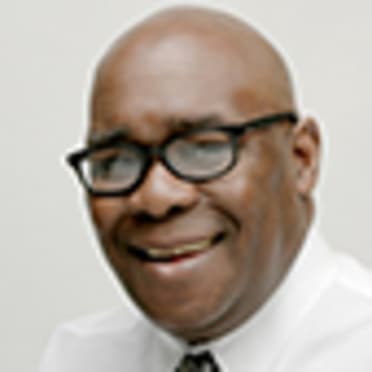NEW YORK -- Michael Hill, who is the senior vice president of on-field operations for Major League Baseball, has had a long career in the game. He recently discussed his career path with MLB Network’s Adnan Virk in “Unfiltered: GM Chronicles,” as part of MLB’s Diversity, Equity & Inclusion program. The entire conversation was streamed on MLB.com.
Hill’s front-office career started at age 24 with the Rays in 1995 as an assistant in the scouting and player development departments. He then joined the Rockies' front office in 2000 as their director of player development before moving to the Marlins in '02 as an assistant general manager.
Five years later, Hill worked his way up to general manager, becoming the fifth African American to hold such a title. Hill then became Miami's president of baseball operations from 2013-20, and he was the sixth African American to hold that job.
“It’s humbling,” Hill said. “In my current role with MLB, I’m involved with diversity, baseball operations. It’s incredibly meaningful for me because I know how hard it has been to make that rise to become a GM and then president of baseball operations.
“As I look back on my career, I want to do everything in my power to pay it forward and prepare as many young people as possible -- to do exactly what I’ve done and do great things in the game of baseball.”
Front-office diversity was part of the conversation, too. Virk asked Hill about how MLB could get more African Americans and Latinos in the front office. Hill feels that’s a multilayered question.
“You have to address it in many ways possible,” Hill said. “I think a big part is [I] wanted to work in baseball because I played the game. That seed and that love of baseball was playing with me at a young age. All the work that our chief baseball development officer, Tony Reagins, is doing is huge by getting young people, people of color [to show that passion and] developing that passion.
“Similarly, the work that Tyrone Brooks, our senior director, is giving out [is outstanding]. He is making opportunities available to people who have shown that passion, and that’s incredibly valuable.
“The biggest onus is going to be on our 30 clubs and making sure they are giving everything in their power to give [young people of color] opportunities. I was fortunate enough to have the people who crossed my life and they opened doors, sharing their experiences and allowed me to grow in the game.”
Like many, Hill wanted to be a baseball player. In fact, he was drafted as a first baseman by the Rangers in the 31st round of the 1993 Draft. After graduating from Harvard, Hill was planning to have a career in the big leagues, then retire and move into the front office. But two-plus years after being drafted, a shoulder injury ended his career. It happened during Spring Training with the Reds. So Hill had to change gears and decided to close the chapter on his playing career.
“I think every athlete has to realize his career [in baseball] is going to come to an end at some point,” Hill said. “You need to take advantage of every opportunity and never have any regrets. Whatever you pursue, you do it with full effort, with full dedication to be successful. When you do walk away, you know you are ready to move on to your next venture.”
Hill’s biggest accomplishment arrived in 2020, when the Marlins advanced to the postseason despite having 18 players contract COVID-19. Because of the outbreak, the Marlins used 61 players and made 171 roster moves that season. Hill said he trusted his scouts and the reports they would give him.
“We didn’t know when [the pandemic] was going to end,” Hill said. “It started with one [player], then it went to nine and then it went to 18. [People] were saying we're going to get kicked out of the league because we have an outbreak going in our clubhouse.
“Outbreak aside, we knew it was going to end. We knew we had to field a team on the field. We were fortunate to have some upper level … depth. Our bullpen was hit pretty strongly hit. [The scouts] identified pieces that would fit with our team. When the outbreak was finished, we had 13 players [who came during the pandemic] who remained active on the roster. We had to make sure we had reinforcements at the alternate [training] site.”
Hill added that he took calls from GMs and agents as he looked for pieces that fit in with the makeup of the team, so that they could adjust quickly once they were added to the roster.
“When we were able to get back on the field … it was like whole new team,” Hill said. “Definitely, credit [goes] to [manager] Don Mattingly. There were no excuses being made.”
